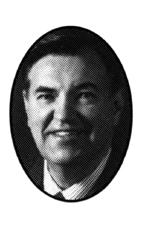Mr. Speaker, I believe there is some difficulty on the part of members of the Reform Party to participate in international visits. I tried to convince their leader to participate in these activities on the grounds that they serve a useful purpose.
I take in good standing the request to submit in advance the cost, the reason for going and the advantage of such a trip. I will do so in the future because there are regular requests for parliamentarians to go abroad to sustain the objectives of the Canadian government or to promote the interests and points of view of Canadians.
For instance, there was a request recently to send a delegation to Washington to impress upon Americans the importance of respecting the steelworkers of Canada. Unfortunately so far we have not been able to convince the Reform Party to join forces with other representatives of Parliament.
I believe there are a number of useful visits abroad. We would like to have the support of that party in joining the two other parties in Parliament to promote Canadian interests abroad.

